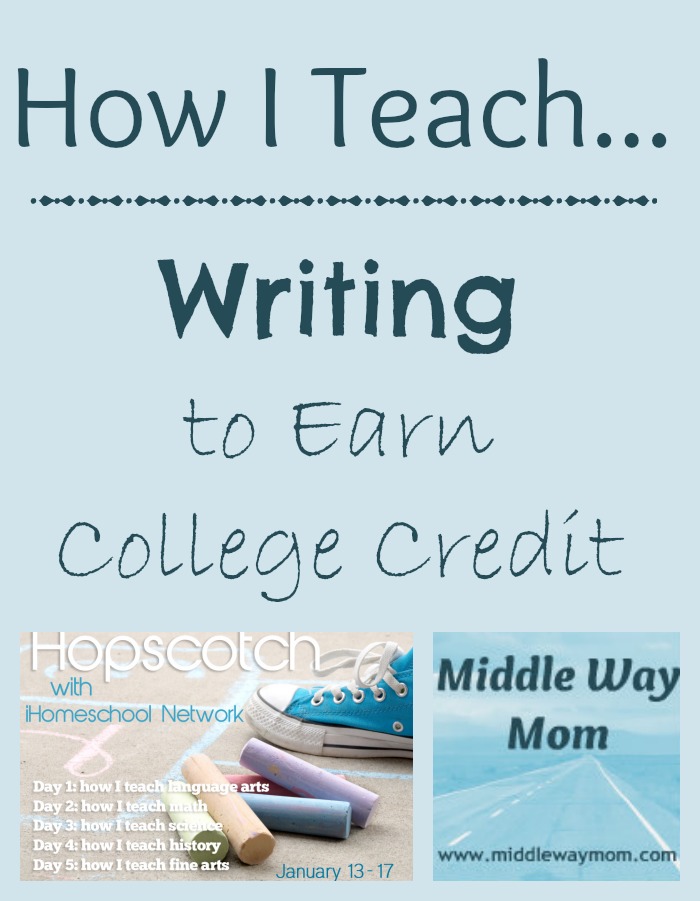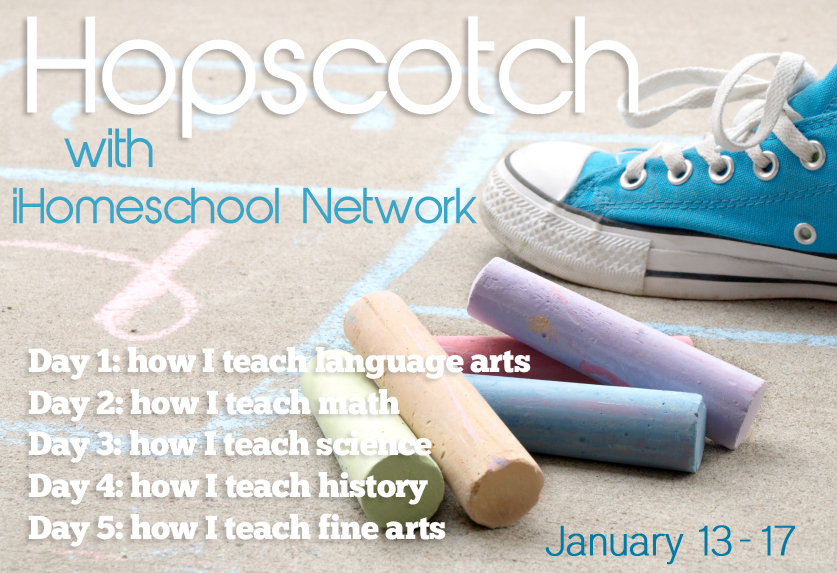
Writing is an extremely important skill for any adult. One’s writing, especially in this ever-increasing virtual world, gives their first impression. As homeschooling moms, we want our kids to be able to give a good first impression.
Beyond that, in our own homeschool, we aim for passing exams that earn college credit like the AP, CLEP, and DSST. In Language Arts this year, we are focusing on the CLEP College Composition exam and building curriculum around that goal.
This post contains affiliate links, which help maintain the running of this site, without costing you anything extra. Your use of affiliate links is appreciated. My disclosure policy is available for reference.
At this level, grammar is already established, along with a good base for writing. We are now fine tuning her skills. What we’ve used to build this foundation:
- IEW Fix-It to review grammar and learn to correct mistakes
- Grammar used when Care Bear was in public school and virtual school
- IEW Ancient History Based Writing Lessons was our first introduction to IEW’s checklist model
- Writing practice through Care Bear’s public and virtual school previously
Care Bear has typically liked her writing courses, does well, and it comes fairly easy for her. Given that, it seems reasonable to get her ready with a somewhat rigorous curriculum. We are using:
- IEW SWI-C
- IEW Elegant Essay
- The Brief McGraw-Hill Handbook
- IEW Fix-It (final year)
- If needed, REA’s CLEP Composition study guide with practice exams
Can you tell I’m a bit of a fangirl about IEW? I love their linear structure, and how many of their products cover the same basic skills, but with different subjects, and varying levels of difficulty. It helps that Care Bear loves the checklists, and thinks Andrew Pudewa is hilarious (and weird, but adults need to be weird for kids to find them funny.) I feel IEW’s programs are a good primer for a college level exam after setting the foundation. Also, IEW provides a lesson plan with many of their products, so I have simply taken their plan and put dates on it that correspond with our school year.
You can download both first quarter and second quarter of our IEW SWI-C lesson plan in a type-able PDF. Elegant Essay comes with a free download to a calendar that has the lesson plan written out for you already.
IEW SWI-C
We chose to complete SWI-C in one semester. It’s pretty easy to take the included one year lesson plan and double up lessons each day to complete the entire course in one semester. On most days, and when she didn’t need to watch the instruction video, Care Bear was done with her lesson in about 30 minutes. We used a mixture of a file folder and Dropbox to turn in completed work. The included lesson plan deviates from the included SWI-C materials slightly by using material from other courses, as is suggested in the Teaching Writing with Structure and Style videos.
IEW Elegant Essay
Elegant Essay is quite different from many of the other IEW products in that it expects a teacher to give a lecture. In sha Allah (God willing), we will be starting this in the next week or two, doubling up with a friend for the lecture portion. The purpose of completing Elegant Essay before the exam is for the formal instruction on a thesis statement, and general further practice with formal writing structure. SWI-C made her writing fun to read, and spiced things up, while the purpose of Elegant Essay is to fine tune the formal process. Not only will it benefit the CLEP Composition exam specifically, but also AP exams since they all have an essay component.
The one area that Elegant Essay does not cover that is required on the exam, is using standard formatting, such as MLA. I will be weaving this in as she goes along using a handbook I had to buy in college, much like the The Brief McGraw-Hill Handbook.
IEW Fix-It – Sir Gawain and the Green Knight
I love that Fix-It uses literature as the backbone to teach the skill of fixing grammar. Care Bear read Sir Gawain and the Green Knight last year, so this should be pretty easy to work through. The CLEP Composition exam includes many multiple choice questions where you are expected to pick out the grammar mistakes, and Fix-It trains one to do just that. The teacher book also includes all the explanations for why things are incorrect, though admittedly, I need to ask Hubby to further explain sometimes. Since he’s the grammar master in our house, in sha Allah, he’ll be taking the reigns for this as we start it in second semester. The teacher book is great, but he can explain it better than I can.
REA’s CLEP Composition Study Guide
Truthfully, I started out disliking the use of test study guides in general, but I’ve started to warm up to them. I do not encourage cramming for an exam just for the sake of passing it, but rather, I aim to teach a well rounded subject area that happens to line up with many goals the exam covers. With that said, if Care Bear is teetering around the pass/fail line, I’ll get a focused study guide to give her a leg up. My aim is to create an environment where she can be successful, in sha Allah.
We’re feeling pretty confident with the exam coming up overall. Writing comes fairly easy to Care Bear, so the plan is simply to present the right information in a logical fashion so it sticks with her beyond exam day. We shall see!
This post is part of iHomeschool Network’s January Hopscotch. Please visit other great bloggers as they explain how they teach various subjects as well!
The rest of the series to check out!
- How I Teach Writing to Earn College Credit {Lesson Plan Included} (January 13, 2014)
- How I Teach Algebra to Earn College Credit (January 14, 2014)
- How I Teach Biology to Earn College Credit (January 15, 2014)
- How I Teach US History to Earn College Credit {Lesson Plan Included} (January 16, 2014)
- How I Teach Fine Arts (January 17, 2014)





I am interested in your teaching to earn college credit pieces but I do not know what your acronyms mean – I am not in the USA. when you say you are teaching for college credit, who are you teaching and how do you get the credit?
Many of the acronyms are test names like AP is Advanced Placement. I would have to guess they are all specific to the US. I’ve been teaching my 14 year old daughter, or rather finding her resources so she can learn (I don’t do much active teaching at this stage), and then she can take a test like the CLEP or DSST (I also wrote about what are the DSST and CLEP test, too), and many colleges and universities will accept that for credits at their institutions. I hope that helps answer your question!